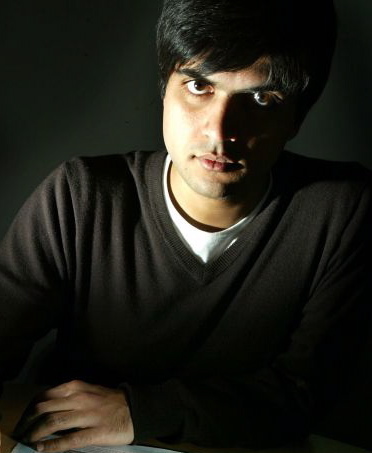Guardian science podcast for September 18, 2006
The latest podcast from the Guardian’s science team is up today. This week’s show, presented by science correspondent James Randerson, features a report on the Neanderthals’ last stand (a cave on the rock of Gibraltar), a treasure trove of science papers released by the Royal Society, and an interview with the roboticist Mark Tilden (the man who invented the Robo Sapiens toy).
Fossil hunter Clive Finlayson of the Gibraltar Museum tells Ian Sample how it felt to be sitting in the final resting place of the last known human species other than our own. Stone tools dated as young as 24,000 years ago litter the floor of the cave and there’s a possibility that underwater caves nearby will provide even more information on how these humans lived – and why they died. Until now, it was thought the Neanderthals died out more than 30,000 years ago.
Interested in the history of science? This Royal Society archive is for you. Librarian Keith Moore talks about the Society’s initiative to let people trawl through its vast archive of scientific research, a massive collection of papers dating back to 1665. Amongst the gems are Arthur Eddington’s proof of Einstein’s theory of relativity in 1919; and the first ever descriptions mammoth bones; and the tale of a musical child prodigy – Mozart. Hurry though, the archive is only online free for the next two months.
An interesting theme that runs through the archive is how science emerged as a discipline from a bunch of well-heeled people carrying out crazy experiments. The Philosophical Transactions of the Royal Society, where much of its fellows’ work was published in the early years shows how people wanted to design repeatable experiments so that others could test their ideas. It’s a powerful testament to the strength of science that this method has survived for so long and, let’s not forget, has brought us some incedible advances in knowledge.
The types of experiment that people have tried over the years is interesting too – Charles II mocked members of the Royal Society when they wanted to weigh air, obviously thinking that there was nothing there. A hundred years ago, the American physician Duncan MacDougall tried to weigh the soul in the name of science – he got a figure of 21 grams. We all know which one of those proved the more useful activity, though MacDougall’s work did make it to Hollywood as the title of a 2003 movie starring Sean Penn and Naomi Watts.
And finally, if you grew up in the 1960s, you probably thought we’d be living in the Jetsons by now – flying cars, honeymoons in orbit and robots in the home were all just around the corner. Unfortunately, robotics has been a big disappointment in the years since. Computers have become phenomenally fast, efficient and useful but modern robots can’t do much beyond simple tasks such as spray-paint cars or repeat simple recorded phrases on cue.
Former Nasa scientist Mark Tilden, the rock star of robotics, talks to technology correspondent Bobbie Johnson about his dream to make robots in the home a reality. He reckons that robots are at the stage now where cars and airplanes were 100 years ago. But he is convinced that things will move fast – in the next two years, they will be doing things that will be useful to people beyond just entertainment.
You can download the show or subscribe via iTunes. There is also an archive of previous science podcasts covering everything from the best science books to high-altitude telescopes.


No comments:
Post a Comment